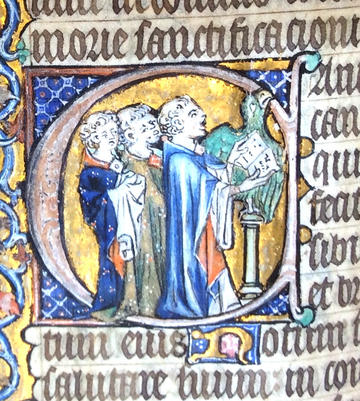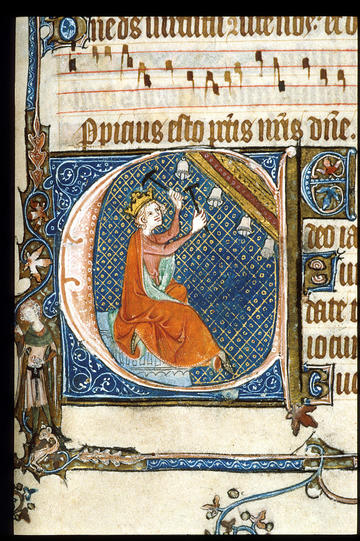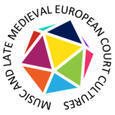ABOUT
MALMECC systematically explores late medieval (c. 1280-1450) court cultures and their music synoptically across Europe.
Project Structure
Music And Late Medieval European Court Cultures (MALMECC) is a six-year research project (2016-2021) funded by an Advanced Grant from the European Research Council. MALMECC is based in the Faculty of Music at the University of Oxford. The project is headed by Principal Investigator Karl Kügle and comprises a trans-disciplinary team of dedicated scholars in medieval studies, musicology, art history, and literature, including six full-time post-doctoral research fellows in art history, general history, literary history, and music history. A large number of visiting scholars and an advisory board made up of a diverse range of distinguished international experts round out the multidisciplinary MALMECC research team. You can find out more about the sub-projects which comprise MALMECC by visiting our RESEARCH AREAS page, and about any associate projects by visiting our ASSOCIATE PROJECTS page.
'New Medievalist' Studies

Late medieval European court cultures have traditionally been studied from a mono-disciplinary and national(ist) perspective. This focus has obscured much of the interplay of cultural performances that informed 'courtly life'. Recent research has been reversing this, focusing on issues such as the tensions between orality, writing, and performance; the sociocultural dimensions of making and owning manuscripts (musical and otherwise); the interstices between musical, literary and visual texts and political, social and religious rituals; and the impact of gender, kinship, and social status on the genesis and transmission of culture and music. These 'new medievalist' studies have significantly enhanced our understanding of the cultural meanings of singing, listening, and sound in late medieval times. MALMECC builds on these studies and takes them to the next frontier.
Towards a new approach
MALMECC is the first project to systematically explore late medieval (c. 1280-1450) court cultures and their music synoptically across Europe. England and the Low Countries, Castile, Avignon, Austria, Bohemia, south-eastern Germany/Salzburg, Savoy, and northern Italy have been selected for study as each was an agglomeration of vibrant sites of cultural production but has been relatively neglected due to prevailing discursive formations favouring ‘centres’ like Paris and Florence. Linking these sites in a large-scale comparative study focused on the role of music in courtly life but embedded within a transdisciplinary framework encompassing all the arts as well as politics and religion will reveal the complex ecology of late medieval performances of courtly life in unheard-of depth while at the same time throwing the unique qualities of each site into distinct relief. The project applies an innovative research paradigm that develops a transdisciplinary and post-nationalist, ‘relational’ approach to the study of music in late-medieval court cultures through jointly applying disciplinary expertise to given research areas, thereby creating intense synergetic effects. We integrate all late medieval arts and hope to reconstitute the fullness of meaning of late medieval artefacts and cultural performances to the greatest extent possible within the framework of the grant.
In short, MALMECC is an attempt to rewrite the history of music in late medieval Europe in a network-based approach that transcends the disciplinary boundaries and epistemological matrices inherited from 19th and 20th century scholarship.

Throughout its six-year programme, the project hosted two major public events; a workshop in spring 2017, and a large-scale international conference during the fourth year (2019). In addition, we regularly engage in scholarly exchanges within the research team as well as between the research team, resident and visiting scholars, members of the advisory board, and research postgraduates from all disciplines in late medieval studies throughout the grant period. Our workshop-style study days (more information at EVENTS proved a particularly inspiring vehicle for trans-disciplinary exchanges. The results of our work are accessible through university presses and on this website (see PUBLICATIONS).
Sub-projects
MALMECC is made up of a number of sub-projects, which together aim to cover many different aspects of medieval music-making in the context of courtly culture.
malmecc.music.ox.ac.uk/research_areas
Please do browse the site to find out more about the project and team.



